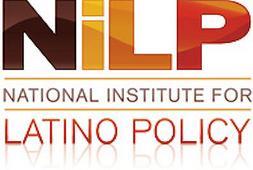
NiLP Commentary
The End of the Puerto Rican?
By Angelo Falcón
The NiLP Report
[G]enocide means any of the following acts committed with intent to destroy, in whole or in part, a national, ethnical, racial or religious group, as such:
a) Killing members of the group;
b) Causing serious bodily or mental harm to members
of the group;
c) Deliberately inflicting on the group conditions of life
calculated to bring about its physical destruction in
whole or in part;
d) Imposing measures intended to prevent births
within the group;
e) Forcibly transferring children of the group to another
group.

In reaction to the inadequate federal response to the crisis in hurricane-ravaged Puerto Rico, some have charged "genocide." The continuing decline in the Island's population raises this concern as its long-term impact remains unknowable. Meanwhile, stateside, there has been a growing concern that Puerto Rican cultural transmission has broken down generationally. Not to be too dramatic, all these indicators, one could reasonably conclude, point to the long-term end of the Puerto Rican.
The devastation caused by Hurricane Maria was something beyond anyone's apocalyptic imaginings. The havoc it has created has been a major game changer for Puerto Ricans on all levels, politically, economically and socially. It is the culmination of the destructiveness of a global capitalism that combines a colonial relationship with economic distortions that together created a massive debt as well as a weakened social and physical infrastructure that couldn't withstand Maria's winds and waters. While the media is increasingly reporting on stories of the hopeful recovery of this or that town or industry and growing feelings of nationalism,, the long-term consequences are unknown, since a horror of this scale is entirely unprecedented. The Puerto Rico that was, many have commented, no longer exists. So the question now becomes, what does or will exist?
What makes the Puerto Rican future so uncertain is the political context within which this crisis has come to be. While this situation is horrendous on its own terms, the fact that it has occurred not only under a politically extreme Republican-controlled Congress but also under an authoritarian populist Trump White House couldn't have been the worst timing possible. As what looks like a soon-to-be-adopted Republican tax plan, it is a political context that is bringing back the notion of trickle-down economics with a vengeance, along with a Presidency beholden to a reckless political base. These are the people and institutions that Puerto Rico is now forced to appeal to for relief assistance and help in shaping its future.
As we see the Puerto Rican stateside diaspora doing all possible to come to the aid of their homeland, this also has negative consequences for this sector of the Puerto Rican population. The impression is that this diaspora is doing well as the focus becomes the crisis on the Island. Now the discussion becomes centered on the migration to Florida and how this strengthens the political position of Puerto Ricans in American national politics, given its swing state position. Efforts are being concentrated on mobilizing this population politically as a negotiating point with a Republican Congress in getting much-needed resources to and legislative changes for Puerto Rico. This is occurring while at the same time pointing to the importance of the Puerto Rican factor in Democratic plans to retake the White House.
But as the poverty rate in Puerto Rico moves beyond 50 percent in Puerto Rico because of the hurricane, the outmigration will no doubt have a similar effect on the stateside Puerto Rican poverty rate. It currently stands at 24 percent, double the 12 percent poverty level for non-Latino Whites, the same as the 24 percent for non-Latino Blacks, and higher than the 22 percent rate for Mexican-Americans. Puerto Ricans, who migrant already as US citizens and have a long history stateside, currently experience the highest poverty rate among the nation's largest racial-ethnic groups. In contrast with their situation in Puerto Rico, the plight of the statewide Puerto Rican within an American racial context gets lost. So does the impact of this high diaspora poverty rate is having on its ability to effectively support this massive outmigration from the Island.
As this diaspora mobilizes to help Puerto Rico politically and economically, both its strengths and weaknesses become exposed. Its strength is its commitment to the survival of the homeland as its more than 5.4 million numbers do their part to raise funds and provide much-needed supplies. While the residents of Puerto Rico cannot vote neither for US President or voting members of the US Congress, those in the diaspora can do both, and currently have five from this community as voting members of the US House of Representatives. It has also shown its strength in building on its long history of civil rights and other community struggles in holding demonstrations and other actions in support of Puerto Rico. All this, despite a history of political elites from Puerto Rico turning their backs on this diaspora that they, on the other hand, can always count on never turning their backs on Puerto Rico.
But this situation has also exposed the many weaknesses of the diaspora. It has been commented on by more than a few that its response has been all over the place, with a lot of activity and little real coordination by Puerto Rican organizations. Despite the size and history of the stateside Puerto Rican presence, it is odd that there is no staffed national organization --- the one they had for many years, the National Puerto Rican Coalition, suddenly disappeared last year without explanation. Other national groupings, like the National Congress for Puerto Rican Rights and the National Puerto Rican Forum, also faded away without much recognition. Along with this is the reality that the number of Puerto Ricans in the US Congress could easily be shrinking from 5 to 2 or three and not replaced due to retirements. Is this all in part the result of a loss of a Puerto Rican focus by being subsumed in a broader Latino agenda?
As its numbers swelled in the last few years to the point that the diaspora is almost twice the size of the Island's population today, it is a population that is more dispersed and politically polarized than ever. While there is great unity over the need to come together to save Puerto Rico, the traditional Northeastern-Midwest stateside Puerto Rican communities in unionized states with a strong New Deal liberal politics finds themselves with a relatively new and growing Southern presence with a potentially more conservative politics coming largely from the Island's statehood movement. Whatever organic political consensus once existed in the diaspora is no longer evident, although it is possibly artificially and perhaps temporarily reactivated in response to today's Trumpism.
With Puerto Rico's population projected to continue to decrease, along with a growing but increasing geographically and politically dispersed diaspora, the Puerto Rican future is quite uncertain. In this sense, we keep going around historically about this uncertainty. In this regard it is perhaps important to note that over four decades ago, in 1976, the US Civil Rights Commission, then deputy directed by of all things a Puerto Rican Republican, issued an important report. It was the first to look at the stateside Puerto Rican community, the diaspora, from a national perspective, entitled, "Puerto Ricans in the Continental United States: an Uncertain Future." This diagnosis was wrong then, perhaps mine will be wrong too. Puerto Ricans can surprise you that way sometimes.
Angelo Falcón is President of the National Institute for Latino Policy (NiLP). He is the coeditor of tyher book, "Boricuas in Gotham: Puerto Ricans in the Making of Modern New York City." He can be reached at afalcon@latinopolicy.org.
